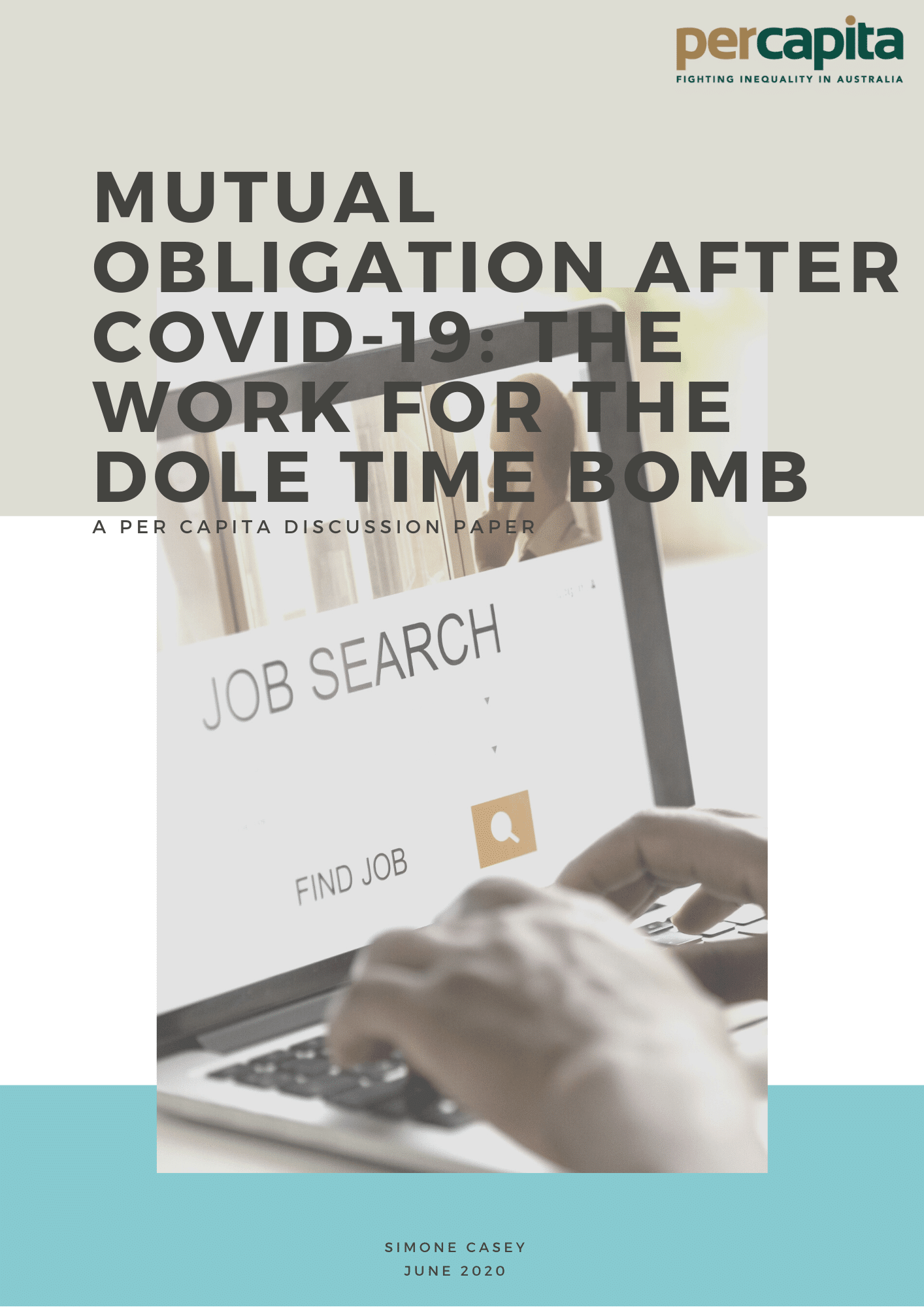Executive Summary
During the economic lockdown that was instituted during the COVID-19 pandemic, ‘mutual obligation’ requirements for people in receipt of unemployment benefits were suspended. For three months, unemployed people were exempt from the usual requirements to look for work, attend appointments with jobactive providers, and engage in other compulsory activities. From 9 June 2020, these mutual obligation requirements were re-introduced in a phased approach.
In this discussion paper we argue that we cannot return to the system of mutual obligation that was in place before the lockdown. The current mutual obligation framework is inflexible and ineffective: a return to this system would impose strict job search requirements that are unreasonable in a labour market where competition for jobs will be fierce. It also currently imposes a requirement that unemployed people undertake Work for the Dole once they have been unemployed for 12 months and after that once for every six months of unemployment that follows.
Current labour market data indicate that there are already 1.6 million people on the JobSeeker payment. With the economic recovery expected to proceed slowly over coming months, it is feasible to expect that there could be as many as one million people remaining on the payment even after COVID-19 related restrictions are lifted.
Our conservative calculation suggests that, in a year’s time, a quarter of those will be required to undertake Work for the Dole under the Mutual Obligation system currently in place. The cost to Government of these additional Work for the Dole placements would be $22 million on top of the averaged six-monthly $300 administration fee jobactive agencies will receive for the one million unemployed people enrolled on their books.
This time bomb will cost the Australian taxpayer $322 million and some of this will be on top of the already allocated $1.3 billion annual jobactive appropriation. But the benefit of this expenditure is doubtful because Work for the Dole reduces work availability and causes harm to people who are already suffering from unemployment related poverty and financial stress. Numerous studies have shown that Work for the Dole does not significantly improve the chance of getting a job. There are also significant concerns about the safety of people participating in Work for the Dole, who do not have the same protections as ‘workers’ under industrial relations legislation.
Instead of a return to existing requirements, we recommend that the current system of mutual obligation should be adjusted to be proportionate and personalised to individual circumstances and work history. This means developing individualised Job Plans comprising a range of elements that reflect life trajectory and vocational goals. Per Capita is concerned that the current jobactive system no longer has the capability to do this well and we have already called for an urgent review of the employment services system.
Our key recommendation is that Work for the Dole be disbanded and replaced with a genuine work experience program for people experiencing long term unemployment. A work experience program could be established through community economic regeneration grants for job creation projects.
List of recommendations
- Disband Work for the Dole and replace it with a genuine work experience program for people experiencing long term unemployment
- Review mutual obligation requirements so that they can be personalised according to each unemployed worker’s individual circumstances and work history
- Introduce job search requirements that are proportionate to labour market conditions
- Ensure that points-based activation is flexible and fair under the New Employment Services Model
- Fund genuine job creation and skills development activities in areas, communities, and industries hit hard by the COVID-19 economic shock
- Provide a “Youth Guarantee” to young unemployed people, and similar measures to support older unemployed people who are at risk of long-term unemployment
- Investigate job service provider errors in Social Security Law decision-making and introduce process improvements

